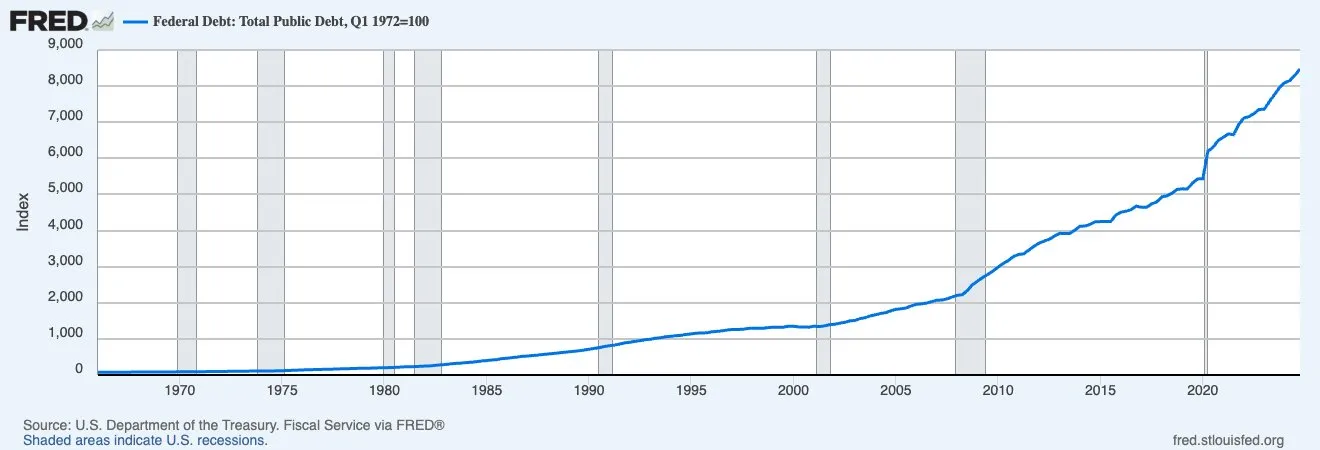Bitcoin Traders See PBOC Intervention as Bullish For BTC Prices in 2025 — Here’s Why
0
0

NAIROBI (CoinChapter.com) — Bitcoin traders are bracing for fresh capital inflows from China as the offshore yuan (CNH) weakens sharply against the U.S. dollar. The latest spike in the USD/CNH pair has fueled speculation that the People’s Bank of China (PBOC) may loosen its grip on the currency to counter trade pressure from Washington.
Crypto executives say the move could push Chinese investors to seek refuge in Bitcoin — just like they did in past trade conflicts.
Yuan Weakness Spurs Bitcoin Demand Narrative
The USD/CNH exchange rate reached 7.3472 on April 8, climbing 1.67% in one month and nearing its local high of 7.3541. This surge reflects mounting pressure on the Chinese yuan amid new U.S. tariffs under President Donald Trump’s administration.

Arthur Hayes, co-founder of BitMEX, said the trend mirrors previous devaluation cycles in 2013 and 2015, both of which preceded major Bitcoin rallies.
“CNY deval = narrative that Chinese capital flight will flow into $BTC,” Hayes wrote on X. “It worked in 2013, 2015, and can work in 2025. Ignore China at your own peril.”
Ben Zhou, CEO of crypto exchange Bybit, echoed Hayes’ view. He pointed to a consistent pattern: Chinese investors tend to move capital into Bitcoin when the yuan drops.

In a repost of Hayes’ thread, Zhou said, “Translation: US vs China Tariff war … China will try to lower RMB to counter the tariff. Historically, whenever RMB drops, a lot of Chinese capital flows into BTC. Bullish for BTC.”
While neither executive issued specific price forecasts, both framed yuan devaluation as a macro trigger for Bitcoin interest among Chinese investors, particularly under capital controls.
Trump Tariffs Escalate Pressure
Tensions escalated after President Trump announced a blanket 10% tariff on all Chinese imports. The Chinese government responded with retaliatory duties. This included 34% tariffs on U.S. goods, set to begin April 10.
Trump dismissed Beijing’s countermeasures as weak. “CHINA PLAYED IT WRONG, THEY PANICKED – THE ONE THING THEY CANNOT AFFORD TO DO!” he posted on Truth Social.

Hayes warned that these actions could disrupt long-standing trade dynamics. “USDCNY is going to 10.00 because there is no way Xi Jinping will agree to change China in the ways necessary to placate Trump,” he wrote. Hayes described such a move as a “super bazooka” for Bitcoin’s path to $1 million.
Global Repercussions Beyond China
Hayes suggested that global confidence in U.S. economic policy may erode even if Trump reverses course. “Even if Trump backtracks on the severity of the tariffs, no finance minister or world leader can risk Trump changing his mind again,” Hayes argued. “You must do what is best for your country.”

He added that the collapse of trust in U.S. trade policy could shift demand away from U.S. bonds and equities. Hayes forecast a return to gold as a reserve asset — or even a new role for Bitcoin as a politically neutral hedge.
“The dollar will still be the reserve currency,” he wrote, “but nations will hold reserves in gold to settle global trade. Trump hinted at this because gold is tariff exempt! Gold must flow freely and cheaply in the new world monetary order.”
BTC as a Hedge Against Currency Instability
Analysts and crypto traders have long monitored Chinese capital outflows as a gauge for Bitcoin demand. If the yuan continues its slide and Beijing allows further devaluation, Bitcoin could regain its appeal as a store of value among yuan holders.
While capital controls remain strict in mainland China, offshore flows through Hong Kong and other hubs often serve as liquidity bridges into crypto markets. Traders may look to exploit that avenue again if geopolitical tensions persist.

Bitcoin price hovered around $79,600 on April 8, although some spot exchanges showed inflated quotes. Despite the drop of 4.76% over the past week, traders like Hayes and Zhou remain focused on broader macroeconomic shifts. Above all, as history suggests, capital outflows during yuan devaluations have historically driven up Bitcoin demand.
0
0
 Manage all your crypto, NFT and DeFi from one place
Manage all your crypto, NFT and DeFi from one placeSecurely connect the portfolio you’re using to start.





